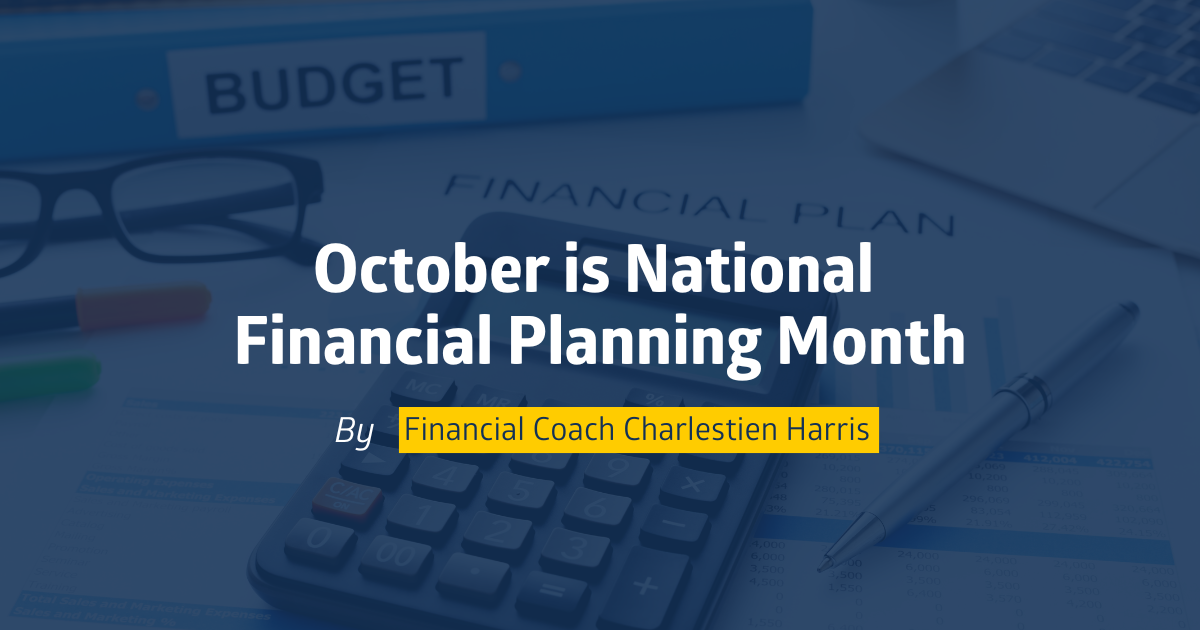Por Charlestien Harris, asesor financiero jubilado de Southern Bancorp
October is the perfect time to review your finances. During the fall season, nature’s changes are evident with just a glance at your surroundings. The same can be said when you take a good look at your financial situation. Since the beginning of the year, many changes may have occurred in your life, and a quick financial review can help you get – or stay – on track with the goals you may have set in January.
Financial planning is officially defined as the comprehensive process of assessing your current financial situation, defining future financial goals, and then creating and implementing a strategy – including budgeting, saving, investing, and managing risk – to achieve those goals.
Here’s a checklist of financial items to include in your review:
1. Evaluate your financial goals.
At least once a year, ask yourself: Does my financial plan still support my financial goals? Goal-setting is essential for keeping your finances on track. It provides a roadmap for your financial future, leading to greater security and reduced stress. Goals give your money purpose and direction, rather than simply drifting from paycheck to paycheck.
2. Anticipate major life changes.
Planning for major life changes helps you navigate uncertainty, reduce stress, and make thoughtful, intentional decisions that align with your long-term goals. Without a plan, you risk making reactive decisions that could negatively impact your finances and overall well-being.
3. Stay on track for retirement.
If you haven’t already, start calculating your retirement income. How much will you have when you retire? A little peace of mind goes a long way when you know you’ll be financially secure in your golden years. Tools like Bankrate, NerdWallet, and other online retirement calculators can help you get started.
4. Check your emergency fund.
An emergency fund is a financial safety net that provides stability and peace of mind during unexpected events. By setting aside money specifically for emergencies, you can avoid high-interest debt and stay on track with your long-term financial goals.
5. Review your insurance coverage.
Do you have enough coverage? I won’t go into detail here, as I covered this topic in a recent article, but please take time to review your insurance policies. Insurance is a key component of an effective financial plan.
6. Plan for future healthcare costs.
While it may be difficult to predict future healthcare expenses, you can research and estimate potential costs. Consider family medical history, current conditions, and factors such as specialist availability, travel, and prescription costs. Planning ahead can help you manage future medical needs more effectively.
7. Accelerate debt repayment.
Living debt-free offers financial flexibility, reduces stress, and helps build a secure future. Two popular debt reduction strategies are the snowball method and the avalanche method.
◦ The snowball method starts with paying off your smallest debt first. Once paid, apply that payment amount to the next smallest debt, and continue the cycle.
◦ The avalanche method focuses on paying off high-interest debts first, which can save you more money over time and free up funds to tackle smaller debts.
8. Create a strategy for sharing your wealth and review your estate plan.
Planning how to distribute your financial assets can ease stress for both you and your loved ones. Give careful thought to your wishes, and put a plan in place to ensure a smoother process when the time comes.
9. Look for ways to minimize taxes.
Taxes play a significant role in your financial life. Tax planning can help you organize your finances and save money. If you’re unsure where to start, consult a certified tax professional for guidance.
A financial planning checklist is a practical guide for managing and growing your money over time. It covers budgeting, saving, investing, debt, insurance, and estate planning, and should be reviewed regularly to adapt to life’s changes.
For more information on this and other financial topics, feel free to email me at charlestienharris77@gmail.com or write to me at Post Office Box 1825, Clarksdale, MS 38614.
Hasta la semana que viene: ¡manténgase en forma desde el punto de vista financiero!
